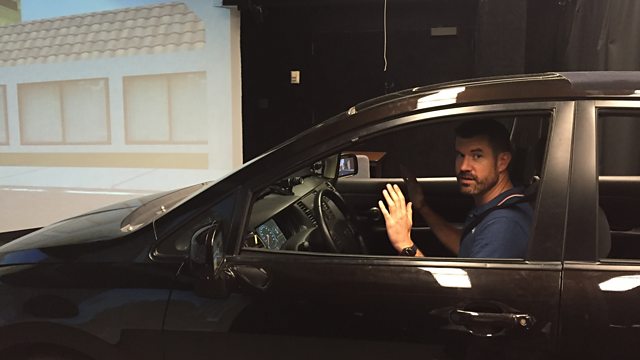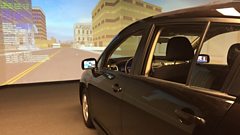Driver Behaviour in Autonomous Vehicles
Sharing knowledge in bioscience; Paying attention in driverless cars; Pathogens that alter behaviour; Satellites keeping track of our planet
More people will need to be fed tomorrow than today. New drugs will be needed for old – and new diseases. To meet the world’s growing demand for food and medicines requires a new approach to bioscience, where plant and animal researchers come out of their scientific silos and swap their best ideas. That is why, in the UK, the National Institutes of Bioscience – the NIB - has been launched.
Who Really Should Be in Control of Driverless Cars?
It is generally assumed that the introduction of autonomous or self-driving vehicles is going to make the roads safer, but there are still a number of critical questions about how we humans will adapt to being driven by a robot. Will we relax and unwind, or hover with our hands over the wheel? This is an important question right now, when cars are getting smarter, but are not 100% self-driving. What happens when these driver assistance tools need the human to take over in an emergency, but that person’s eyes are not on the road? Researchers at the Transportation Research Institute, or UMTRI, at the University of Michigan, near Detroit, have built an incredibly realistic driving simulator, a full sized car in a room of high definition screens – to monitor the behaviour and reaction times of drivers.
Mind-bending Pathogens
The choice is yours. But is it? Do we really have total control over how we lead our lives? Research is starting to reveal the various facets of animal and human behaviour that are under the potential control of the bacteria, parasites and viruses that infect us. For example, the parasitic protozoan – Toxoplasma gondii changes the behaviour of mice, making them more attracted to cats. The parasite needs life stages in cats and mice to help aid its spread - it also has some strange effects on human behaviour.
Satellites Watching the Planet
You are being watched! Nations are clamouring to fill the skies with satellite networks, swarms of eyes in the sky spying on the condition of our planet. But do not be alarmed, an important aim is to inform people so that this information can be used for a range of purposes - to predict crop yields, parasite outbreaks and so much more.
(Photo: Jack Stewart testing out the driving simulator at the Transportation Research Institute, University of Michigan © Jack Stewart)
Last on
More episodes
Clip
-
![]()
Who really should be in control of autonomous cars?
Duration: 02:17
Broadcasts
- Thu 25 Jun 2015 18:32GMT����ý World Service Online
- Thu 25 Jun 2015 23:32GMT����ý World Service Online
- Fri 26 Jun 2015 04:32GMT����ý World Service Online
Podcast
-
![]()
Science In Action
The ����ý brings you all the week's science news.



